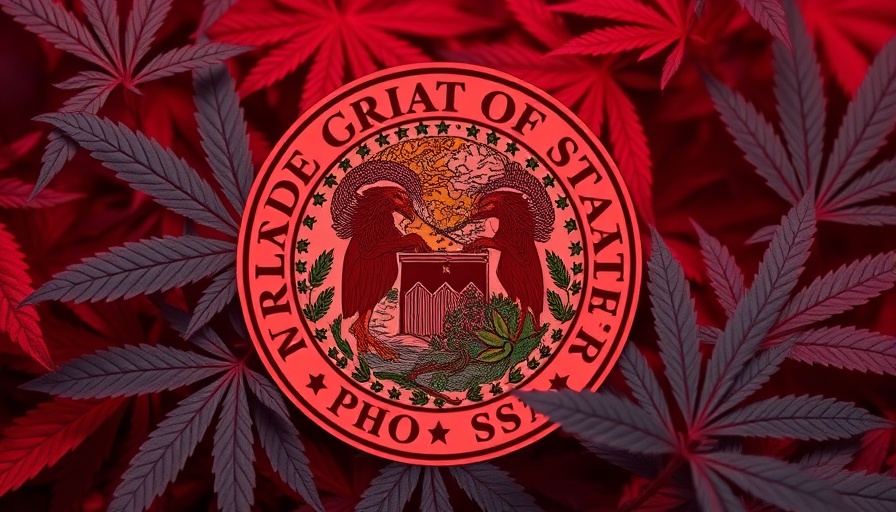
Florida’s Changing Cannabis Landscape: What’s Next?
The resignation of Christopher Kimball, Florida’s top marijuana regulator, is more than just a personnel change; it signals a pivotal moment in the state's ever-evolving cannabis landscape. Kimball, who has led the Office of Medical Marijuana Use for three years, is set to take on a new role as deputy general counsel in Governor Ron DeSantis’s office. His departure could reshape the regulatory framework in a state gearing up for significant legal battles.
Legal Challenges Ahead: A Showdown for Cannabis Licenses
One of the substantial issues looming on the horizon is the state’s decision to award 22 new medical marijuana licenses. This decision has ignited legal challenges from numerous vendors who were denied licenses, resulting in over 20 lawsuits being consolidated into a single case. A hearing is expected to commence in October, potentially delaying the issuance of new licenses by another year. This challenging landscape raises important questions about equity, access, and the future of Florida's medical marijuana program.
What Does Kimball’s Resignation Mean for Florida’s Cannabis Community?
As Kimball steps down, many in the cannabis industry are left wondering what his exit means for ongoing regulatory uncertainty. Kimball's leadership style and understanding of the complexities of cannabis regulation have been integral during his tenure. The appointment of Bobbie Smith, formerly of the Florida Department of Law Enforcement, may bring a different approach. How this transition will influence the state's stance on medical marijuana licensing remains to be seen.
Looking Ahead: The Push for Adult-Use Cannabis
Kimball’s resignation comes on the heels of a failed ballot initiative aiming to legalize adult-use cannabis. Advocates are eager for another attempt in 2026, but with a complex legal backdrop, the path forward is fraught with uncertainty. Public sentiment appears to be shifting, with many Floridians likely to follow the developments closely, hoping for a future where adult-use cannabis is a reality.
Key Takeaways for Cannabis Industry Stakeholders
For cannabis industry stakeholders, this moment serves as a reminder to stay informed and engaged. The regulatory environment is continually changing, and understanding the implications of personnel changes and ongoing legal challenges is crucial. As advocates gear up for the 2026 campaign, businesses will need to strategize, engage with lawmakers, and prepare to adapt to new regulations that might arise.
Final Thoughts
Kimball's departure is indicative of the broader currents shaping the cannabis industry in Florida. As new leadership steps in and legal battles unfold, continuous monitoring of these developments is essential for those invested in the future of cannabis in the state. The evolving scenario reminds everyone that the conversation surrounding cannabis is far from over. Stay connected to the latest cannabis industry news to prepare for what lies ahead.
 Add Row
Add Row  Add
Add 




Write A Comment